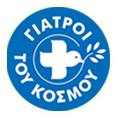During 8 days, 30 mobile teams and over 120 health workers will be vaccinating 12,000 children against measles and polio. Children will also receive vitamin A supplements and treatment against parasites.
"The numerous displacements of households, as well as the limited access to affordable food, drinking water and healthcare has dramatically increased the risk for epidemics in the North”, says Olivier Vandecasteele, head of the Mali programs. “This mass immunization does not only protect the children but also prevents the spread of diseases within the larger community. This campaign is a very cost-effective preventive action for the benefit of the whole region”.
Along with the vaccination campaign, children and pregnant mothers will be screened for symptoms of malnutrition. "We saw a gradual increase of malnourished children and mothers in our health centres. Therefore we decided to take action" says Vandecasteele. Children with moderate or severe malnutrition will receive therapeutic food and will be monitored in one of the 12 health centres Doctors of the World has reopened in the region. The severe cases will be referred to the hospital in Kidal which is also supported by the NGO.
“Given the size of the region, the poor infrastructure and the on-going conflict, this action will be a real operational challenge for the staff” concludes Vandecasteele. Doctors of the World/Médecins du Monde is one of the few NGOs which continued to work for the benefit of the local population in this isolated and underdeveloped region.
Médecins du Monde (Doctors of the World) is a medical Non-Governmental organization operating according to the humanitarian principles of neutrality, impartiality and independence. In North Mali, our emergency programs focus on rebuilding access to health care for vulnerable populations. We support health structures including hospital and community health care centers. We implement nutritional programs including screening and treatment of severe and moderate acute malnutrition. We guarantee operational capacity to respond to epidemic diseases. This large scale intervention is made possible through support of private donors, the European Commission Humanitarian Aid Office (ECHO), the Belgian DGD, and implementing partner UNICEF.
